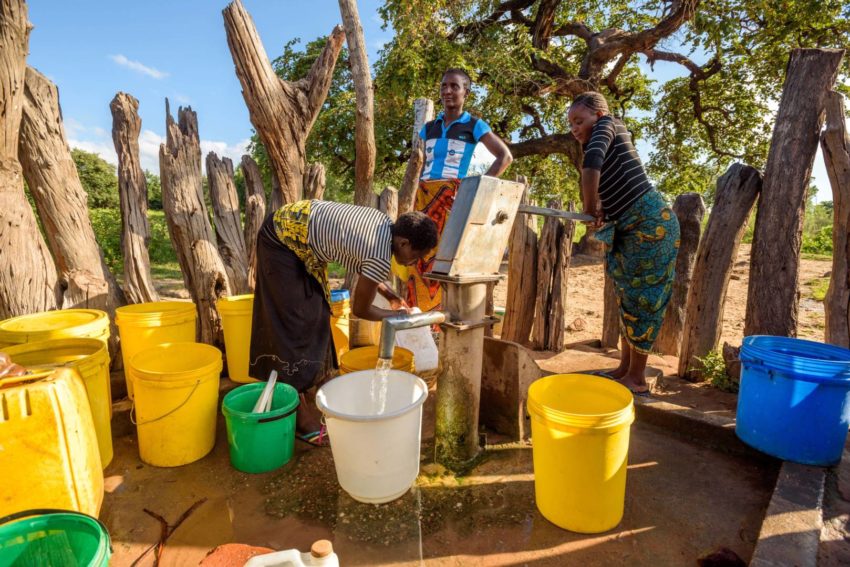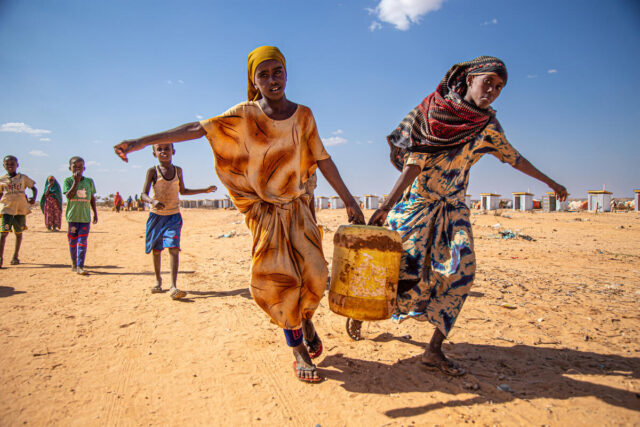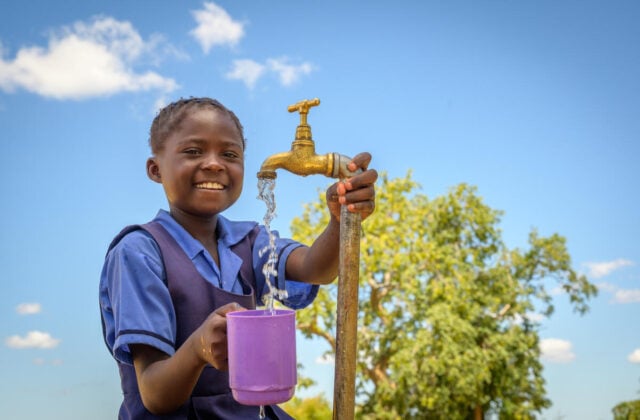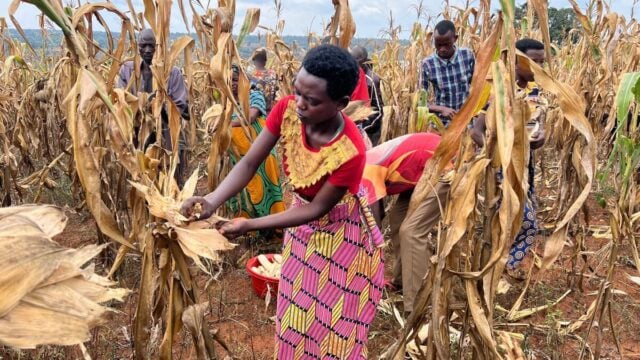We travel down a dirt track in southern Zambia and into a crowd of 50 brightly dressed men, women, and children singing and dancing as our vehicle comes to a halt. Today, the World Vision rig is going to drill for water to create a clean source for 27 households and 114 people in this arid community of Namadula.
To date, villagers have had a choice between nearby polluted water from a broken-down dam or a borehole well with clean water more than four miles away. The day before we arrived, the drill team worked long hours on a borehole for this village — but the hole came up dry.
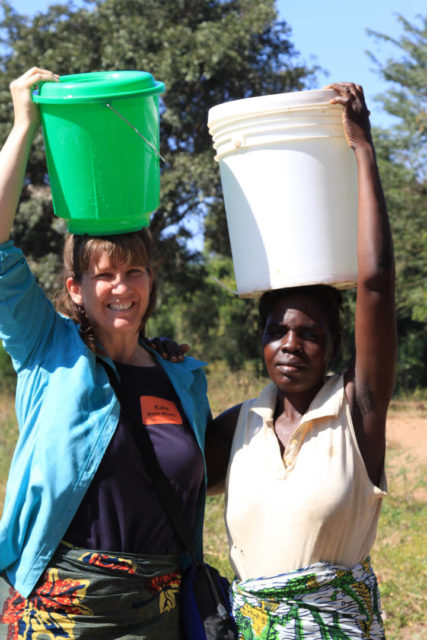
Today, however, the people of Namadula are brimming with hope. As a sponsor of three World Vision children — one in Zambia — so am I. A clean water source right in the village will mean more girls like Mercy, our Zambian “daughter,” can go to school instead of carrying water from a distant source. I’m excited to see our sponsorship dollars in action, creating benefits for all children in the community.
In John 7:37, Jesus tells the people gathered around him, “If anyone is thirsty, let him come to me and drink.” His metaphor for slaking spiritual thirst draws on the most basic physical need of every part of his creation — hydration. As donors who are followers of Christ, our outpouring of holy streams of living water that flow from within have helped provide life-giving water for others. That water is not only sustaining, but also enriching.
For example, I’ve witnessed how clean water close by frees up time for economic pursuits. In another Zambian village, a World Vision well helped Emily Syabubila and her three children when they needed it most after her husband died. His relatives took the family livestock and furnishings, an age-old tradition, albeit illegal under modern law. “I had nothing for me and the children but a roof over our head,” said Emily.
But she did have time, thanks to the close proximity of her community’s new water supply. So Emily applied for and was awarded a year-long contract with World Vision to teach weaving to other women. She also had time to work as a seamstress, and she soon obtained her first World Vision loan of about $75 to buy a sewing machine and start a business making school uniforms. Two additional loans allowed her to start successful fish and agriculture businesses.
With her profits, Emily sent all three of her children to high school. Giving the glory for her success to God, she also found time to give back as a village healthcare volunteer.
They said, ‘We’ve found water.’—Genesis 26:32 (NIV)
Back at Namadula’s drill site, I know that if water can be found today, more stories like Emily’s will soon be unfolding. As I wait, a tall woman in yellow introduces herself, telling me she and nine others in the village have formed a water, sanitation, and hygiene committee. They have already met to assign roles — she is chairperson — and agree on a contribution from each household that will maintain their new well. “We are so thankful,” she says. “As you help us, so we should help others.”
Now it is up to six men in blue jumpsuits manning the World Vision rig. They pray, and soon pure, life-giving, life-changing, water sprays forth.
The women, who have kept up a steady song and beat, go wild with ululation. My cheeks feel spray — or is it tears? Now more children will be healthy, more girls will go to school, and more families can improve their livelihoods. And all will feel the effects of our living streams of water flowing outward, reaching others with Christ’s very tangible love.
Katie Smith Milway is a board member of World Vision U.S. Her family sponsors children in Zambia, Eswatini (Swaziland), and Kenya. Katie is also a best-selling author of children’s books that focus on world issues, including One Hen, The Good Garden, and Mimi’s Village.
